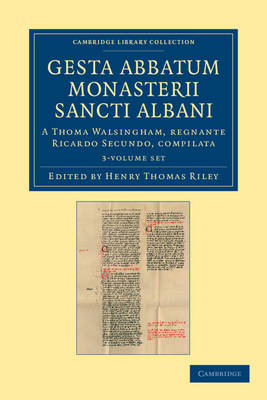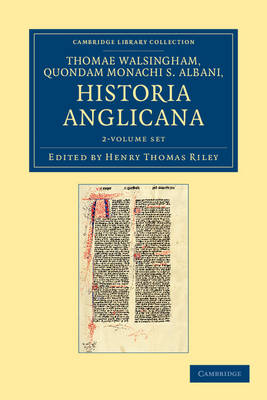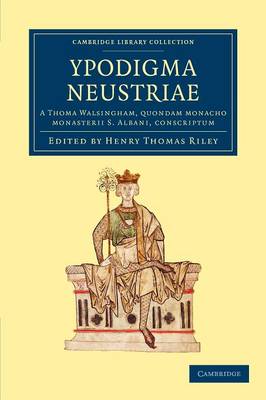Cambridge Library Collection - Rolls
5 primary works • 8 total works
Volume 1
Gesta abbatum monasterii Sancti Albani: Volume 1, AD 793-1290
by Thomas Walsingham
Volume 1
Thomae Walsingham, quondam monachi S. Albani, historia Anglicana: Volume 1, AD 1272-1381
by Thomas Walsingham
Volume 2
Gesta abbatum monasterii Sancti Albani: Volume 2, AD 1290-1349
by Thomas Walsingham
Volume 2
Thomae Walshingham, quondam monachi S. Albani historia Anglicana: Volume 2, AD 1381-1422
by Thomas Walsingham
Volume 3
Gesta abbatum monasterii Sancti Albani: Volume 3, AD 1349-1411
by Thomas Walsingham
Thomae Walsingham, quondam monachi S. Albani, Historia Anglicana 2 Volume Set
by Thomas Walsingham



